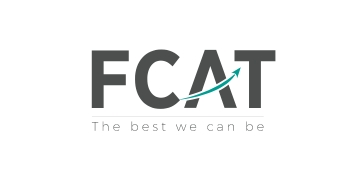Skills Minister Nick Boles has broken his promise to the House of Commons Education Select Committee that there would be “many fewer” new apprenticeship Trailblazer standards than the frameworks they will replace by 2017.
He told committee members in January that he was worried about the “unbelievable proliferation” in the number of frameworks, which currently stands at 334, adding “what I promise you we will achieve, is many fewer standards”.
But Graham Stuart, who was chair of the committee at the time, has hit out at the government’s streamlining effort after it was revealed that more than 350 standards have already either been delivered or are being developed.
The Conservative MP said that Mr Boles “told my then committee earlier this year that there was an ‘unbelievable proliferation’ of different standards and this represents a missed opportunity to address the problem”.
“The government has achieved a great deal with apprenticeships reform, transforming both the quality and quantity of the opportunities available to young people,” added Mr Stuart, who chaired the committee from June 2010 to March this year.
“It is, however, disappointing that ministers have still been unable to simplify the confusing landscape of different standards that are applied to apprenticeships, the sheer complexity of which risks diluting the consistency of the qualification.”
Mr Boles didn’t comment directly on the broken promise, but a Department for Business, Innovation and Skills (BIS) spokesperson told FE Week: “There will be one new standard for each occupation identified by employers as requiring an apprenticeship, and the standards will replace existing apprenticeship frameworks.”
He added: “Employers are in the driving seat developing apprenticeship standards that will benefit businesses. They are best placed to identify where there are skills shortages.”
A BIS press release published on August 21, which marked the launch of a consultation on the proposed apprenticeship levy for large businesses, stated that “there are now over 140 Trailblazer groups that so far have collectively delivered or are in the process of delivering, over 350 standards”.
It followed Mr Boles’ promise to the committee on January 14, after he was called to answer questions as part of its investigation into apprenticeships and traineeships for 16 to 19-year-olds.
The resulting report published in March warned against over-complicated “system changes which deter employers, and smaller employers in particular, from participating”.
Neil Carmichael, current chair of the committee, told FE Week on Friday: “We do need to tease out what an apprenticeship actually is and to make it as relevant as possible for the workplace.
“We have to bear in mind that we have committed ourselves to creating a further 3m apprenticeships and so be mindful of standards.”
An online FE Week report on August 6 warned of growing frustration among Trailblazer apprenticeship designers over the government’s slow progress with approving standards.
Around 35 have been judged ready for delivery by BIS so far.
More than 180 had been published by the Trailblazer groups on the BIS website at the time of going to press, but are still waiting for final BIS approval.
Meanwhile, BIS declined to say how many standards currently being developed by Trailblazer groups have not yet been published on its website.
Editor’s comment
Not a standard first
The streamlining of apprenticeship guidance under the new Trailblazer system is a process to which a broken promise is no stranger.
In March, FE Week revealed how Skills Minister Nick Boles had relaxed much-vaunted rules set by his predecessor, Matthew Hancock, that limited the new standards to two sides of A4.
The appearance of six standards running to between three and five A4 pages had signalled, as was confirmed by the Department for Business, Innovation and Skills at the time, the death of the two-page standard rule.
So to see the number of standards coming in above the number of frameworks they are replacing, represents another broken promise.
But it follows a number of other FE Week reports that do not paint a wholly rosy picture of the path to the Trailblazer standards system.
Full approval for standards is slow in coming, and even for those that are ‘ready to deliver’ the uptake is slow.
It therefore seems entirely possible that the next broken promise heading our way (unless, of course, there are others first) is an extension of the lifespan of frameworks beyond their 2017 cut- off.
Chris Henwood
chris.henwood@feweek.co.uk








This shouldn’t come as a shock to anyone.
The new standards were introduced to replace frameworks that weren’t owned by employers, although these were produced with a similar amount of employer input that we’ve seen with the new standards through these trailblazers.
By handing the responsibility and accountability to employers, Ministers not only allowed this work to proceed with little discernible regulation, but they seem to have turned a blind eye to the predictable, potentially destructive, avalanche of standards that will inevitably be designed to suit individual employer, not occupational, needs.
Employers without doubt should be involved in this process, and no one would argue with the authority afforded them for choosing who should provide their training, but their business expertise does not automatically give them the necessary ability to produce standards necessary for skills and education.
Employers and learning providers have worked successfully in partnership for many years, and it is through understanding the employers needs and matching those needs to the relevant skills training that underpins the trust in that partnership.
Allowing trailblazers continue on this trajectory, creating standards that meet employer, not occupational needs, then we should prepare to see this number to double over the coming years.